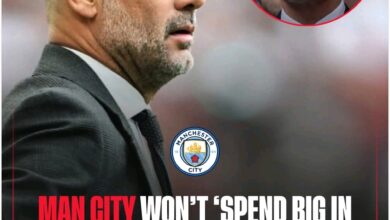Manchester City’s 115 Charges: A Comprehensive Analysis of Football’s Most Controversial Case

The world of football finds itself embroiled in one of the most significant regulatory controversies in recent memory, as Manchester City’s 115 charges case continues to cast a shadow over the beautiful game. What began as regulatory scrutiny has evolved into a protracted legal battle that has tested the limits of football governance, raised questions about financial fair play, and divided opinion across the sporting landscape.
Gary Neville, the former Manchester United defender turned pundit, has emerged as one of the most vocal critics of how this situation has been handled. His recent comments describing the case as an “absolute disgrace” and a “stain to the game” reflect the growing frustration among football stakeholders who are demanding clarity and resolution in what has become an increasingly murky affair.
The charges against Manchester City stem from alleged financial irregularities spanning nearly a decade, from 2009 to 2018. The Premier League announced these charges in February 2023, marking a watershed moment in English football’s approach to financial regulation. The allegations encompass a broad spectrum of potential violations, including accusations of providing misleading financial information, failing to cooperate with Premier League investigations, and breaching financial fair play regulations.
These charges represent far more than mere administrative oversights. They strike at the heart of competitive integrity in modern football, where financial resources increasingly determine success on the pitch. The allegations suggest systematic attempts to circumvent regulations designed to ensure fair competition, raising questions about the validity of achievements during the period in question.
The complexity of the case cannot be understated. Each of the 115 charges represents a specific allegation that requires detailed examination of financial records, witness testimony, and legal interpretation. The sheer volume of charges indicates the Premier League’s belief that any potential violations were not isolated incidents but part of a broader pattern of behavior.
Throughout this ordeal, Manchester City has maintained a stance of complete denial regarding all allegations. The club’s leadership has consistently characterized the charges as baseless and has expressed confidence in their ultimate vindication. This unwavering position has been supported by significant legal resources and a comprehensive defense strategy that challenges both the substance of the allegations and the procedures used to investigate them.
The club’s approach has been multifaceted, involving not only direct responses to the specific charges but also broader challenges to the Premier League’s authority and investigative methods. City’s legal team has argued that the charges are politically motivated, procedurally flawed, and based on incomplete or misinterpreted evidence.
Manager Pep Guardiola has played a crucial role in maintaining team morale and public confidence during this period. His public statements have consistently supported the club’s position while attempting to shield players and staff from the controversy’s psychological impact. Guardiola’s February suggestion that a verdict might emerge in March demonstrated the uncertainty even those closest to the situation face regarding the timeline for resolution.
The formal hearing process began in September of the previous year, representing a significant milestone in the case’s progression. However, the hearing’s conclusion in December without a definitive verdict has only added to the frustration surrounding the entire affair. This delay reflects the case’s complexity and the high stakes involved for all parties.
The hearing process itself has been conducted behind closed doors, limiting public access to proceedings and contributing to speculation about the case’s merits and likely outcomes. This opacity has been both necessary for legal reasons and problematic for public confidence in the process.
Legal experts have noted that cases of this magnitude and complexity often require extensive deliberation periods. The panel responsible for determining the outcome must consider vast amounts of evidence, legal precedents, and the potential implications of their decision on English football’s regulatory framework.
Gary Neville’s characterization of the situation as “an absolute stain to the game” represents more than personal frustration; it reflects broader concerns within the football community about the handling of high-profile regulatory cases. His comments, made during The Overlap Fan Debate alongside Paul Scholes and Jamie Carragher, with football finance expert Kieran Maguire, highlight the growing impatience with the lack of resolution.
Neville’s position is particularly significant given his history with Manchester United, City’s cross-town rivals. However, his criticism extends beyond traditional rivalries to encompass systemic concerns about football governance. His acknowledgment of having “a lot of admiration for City” while simultaneously condemning the situation demonstrates the complexity of emotions surrounding this case.
The former England international’s call for expedited resolution resonates with many who believe the prolonged uncertainty serves no one’s interests. The lack of transparency and definitive timeline has created a climate of speculation that arguably damages all parties involved, regardless of the eventual outcome
Despite the ongoing legal proceedings, Manchester City has continued to operate at the highest level of professional football. The club’s on-field performances have remained exceptional, with the team competing for major trophies and maintaining their position among Europe’s elite clubs. This continuation of excellence raises questions about the practical impact of regulatory uncertainty on day-to-day operations.
However, the charges have undoubtedly created challenges for the club’s leadership, players, and supporters. The constant media attention and speculation create distractions that must be managed carefully to maintain focus on sporting objectives. The uncertainty also affects long-term planning, particularly regarding player recruitment and retention.
The club’s commercial relationships have also faced scrutiny, with sponsors and partners inevitably considering the potential reputational risks associated with the ongoing case. While no major commercial partners have withdrawn their support, the situation requires ongoing management and communication to maintain confidence.
The Manchester City case has broader implications for financial fair play regulations across European football. The outcome will likely influence how similar cases are handled in the future and could prompt revisions to existing regulatory frameworks. The complexity and duration of this case highlight potential weaknesses in current enforcement mechanisms.
UEFA’s Financial Fair Play regulations and the Premier League’s equivalent rules were designed to prevent clubs from spending beyond their means and to ensure competitive balance. However, the effectiveness of these regulations depends on consistent and timely enforcement. The prolonged nature of the City case raises questions about whether current procedures are fit for purpose.
Other clubs are watching the proceedings closely, as the outcome could affect their own compliance strategies and risk assessments. A lenient outcome might encourage more aggressive financial practices, while severe sanctions could prompt more conservative approaches to spending and revenue generationn
The media coverage surrounding Manchester City’s 115 charges has been extensive and often polarized. Different outlets have taken varying approaches to reporting the case, with some focusing on the potential severity of the allegations while others emphasize the club’s denials and legal challenges.
This divergent coverage has contributed to divided public opinion, with football fans and observers forming strong opinions based on incomplete information. The lack of transparency in the proceedings has created an information vacuum that speculation and conjecture have filled.
Social media has amplified these divisions, with supporters of different clubs using the case to advance their own narratives about fairness, competition, and sporting integrity. The tribal nature of football fandom has made objective discussion of the case’s merits challenging in many forums.
The Manchester City case occurs within a broader context of evolving football governance structures. The sport faces increasing pressure to demonstrate transparency, accountability, and effective regulation in response to growing commercialization and globalization.
Recent years have seen various initiatives aimed at improving football governance, including the introduction of independent regulators in some jurisdictions and enhanced monitoring systems for financial compliance. The City case represents a test of these evolving systems and their ability to handle complex, high-stakes investigations.
The case also highlights tensions between different levels of football governance, from domestic leagues to continental federations and global bodies. Coordination between these entities is crucial for effective regulation but can be challenging to achieve in practice.
The financial implications of the Manchester City case extend beyond the club itself. The Premier League’s reputation as a well-regulated, commercially attractive competition depends partly on its ability to enforce its own rules effectively. Prolonged uncertainty or perceived weakness in enforcement could affect the league’s global appeal and commercial value.
Investors and stakeholders across football are monitoring the case for signals about regulatory risk and enforcement consistency. The outcome could influence investment patterns, club valuations, and strategic planning across the sport.
The case also raises questions about the economic model underlying modern football, where success increasingly depends on financial resources that may not always be generated through traditional revenue streams. The balance between financial innovation and regulatory compliance remains a critical challenge for the sport’s development.
As the football world awaits a resolution to Manchester City’s 115 charges, speculation about potential outcomes continues to intensify. The range of possible sanctions varies dramatically, from complete exoneration to severe penalties including points deductions, transfer restrictions, or even exclusion from competitions.
The precedent set by this case will likely influence football governance for years to come. A thorough, transparent resolution that demonstrates the effectiveness of regulatory systems could strengthen confidence in football’s governing bodies. Conversely, a perceived failure to reach a satisfactory conclusion could prompt calls for more fundamental reforms.
The timing of any verdict remains uncertain, despite earlier suggestions that a decision might be reached by March. The complexity of the case and the need for thorough deliberation suggest that patience may be required, even as frustration continues to mount among stakeholders
The Manchester City 115 charges case represents more than a regulatory dispute between a club and its league. It has become a defining test of modern football’s ability to govern itself effectively in an era of unprecedented commercial pressures and global scrutiny.
Gary Neville’s characterization of the situation as “a disgrace” captures the frustration felt by many who believe that prolonged uncertainty serves no one’s interests. The lack of resolution not only affects Manchester City but undermines confidence in football’s regulatory systems more broadly.
As the case continues toward its eventual conclusion, all stakeholders must consider what lessons can be learned and what improvements might be necessary to prevent similar situations in the future. The sport’s integrity and credibility depend on effective governance that balances competitive fairness with practical enforceability.
The resolution of Manchester City’s case, whenever it comes, will likely mark a watershed moment in football governance. Whether it strengthens or weakens confidence in regulatory systems will depend not only on the outcome but on the transparency and perceived fairness of the process that leads to that outcome.
Until then, the football world must continue to grapple with the uncertainty that Gary Neville and others have so eloquently criticized, while hoping that the eventual resolution will serve the sport’s long-term interests and restore confidence in its governing institutions. The stakes could not be higher, not just for Manchester City, but for the future of fair play and competitive integrity in the beautiful game.















